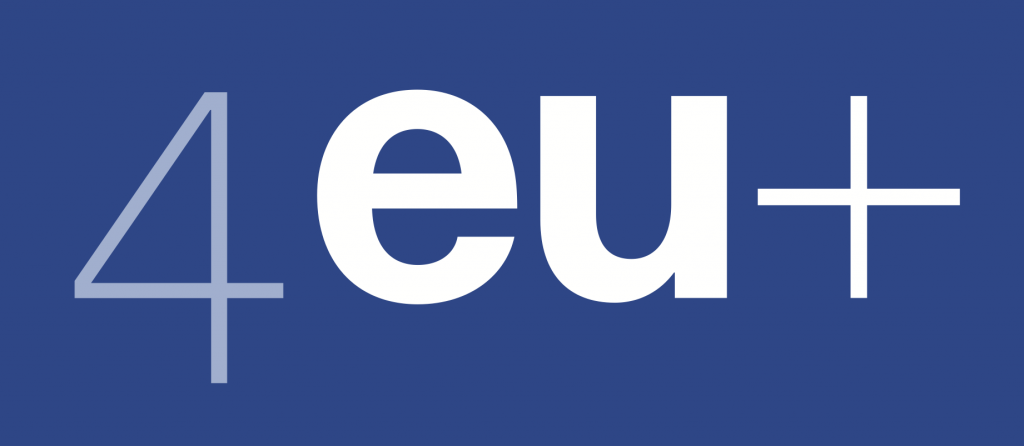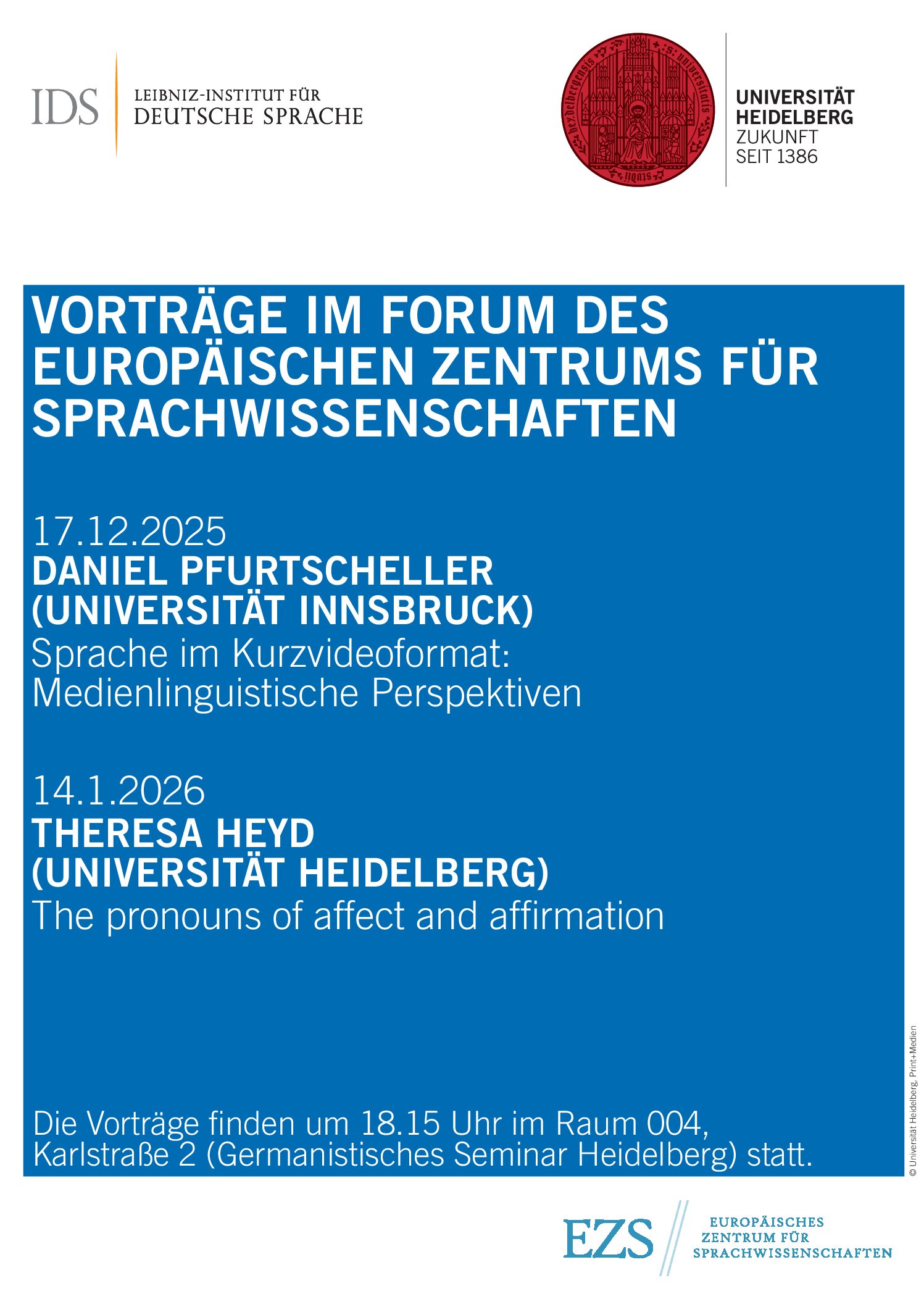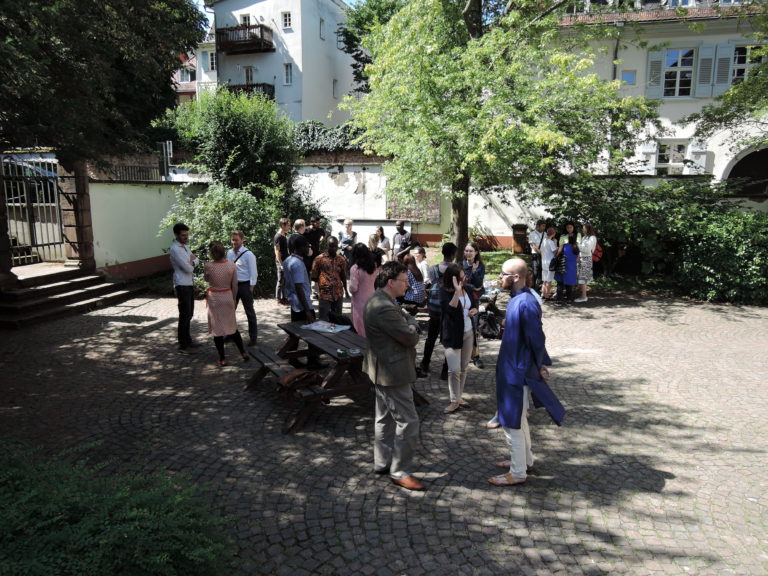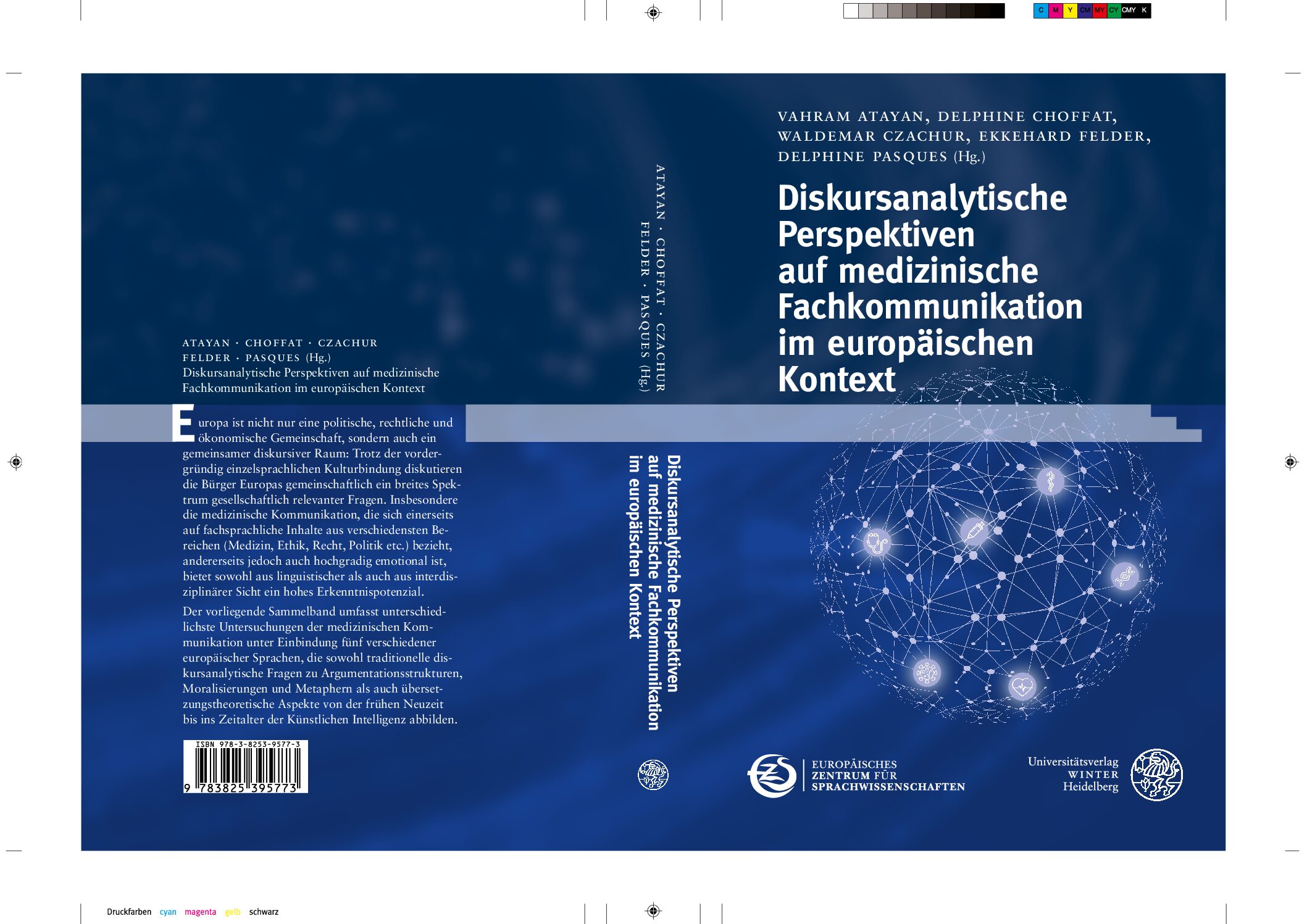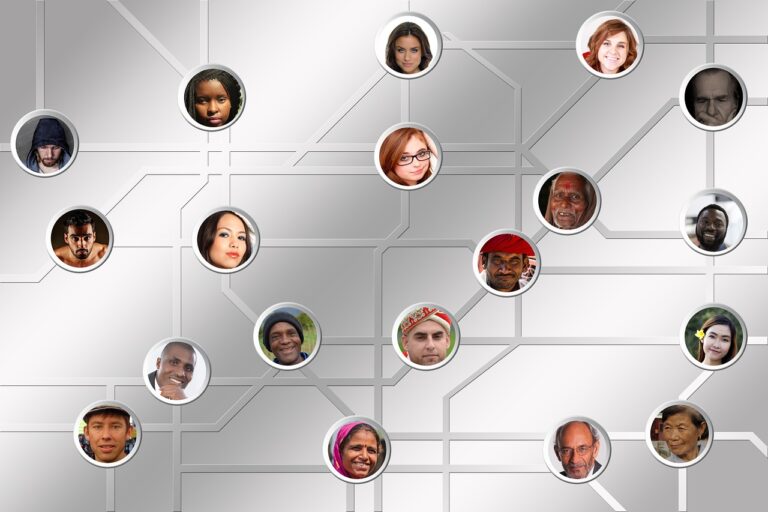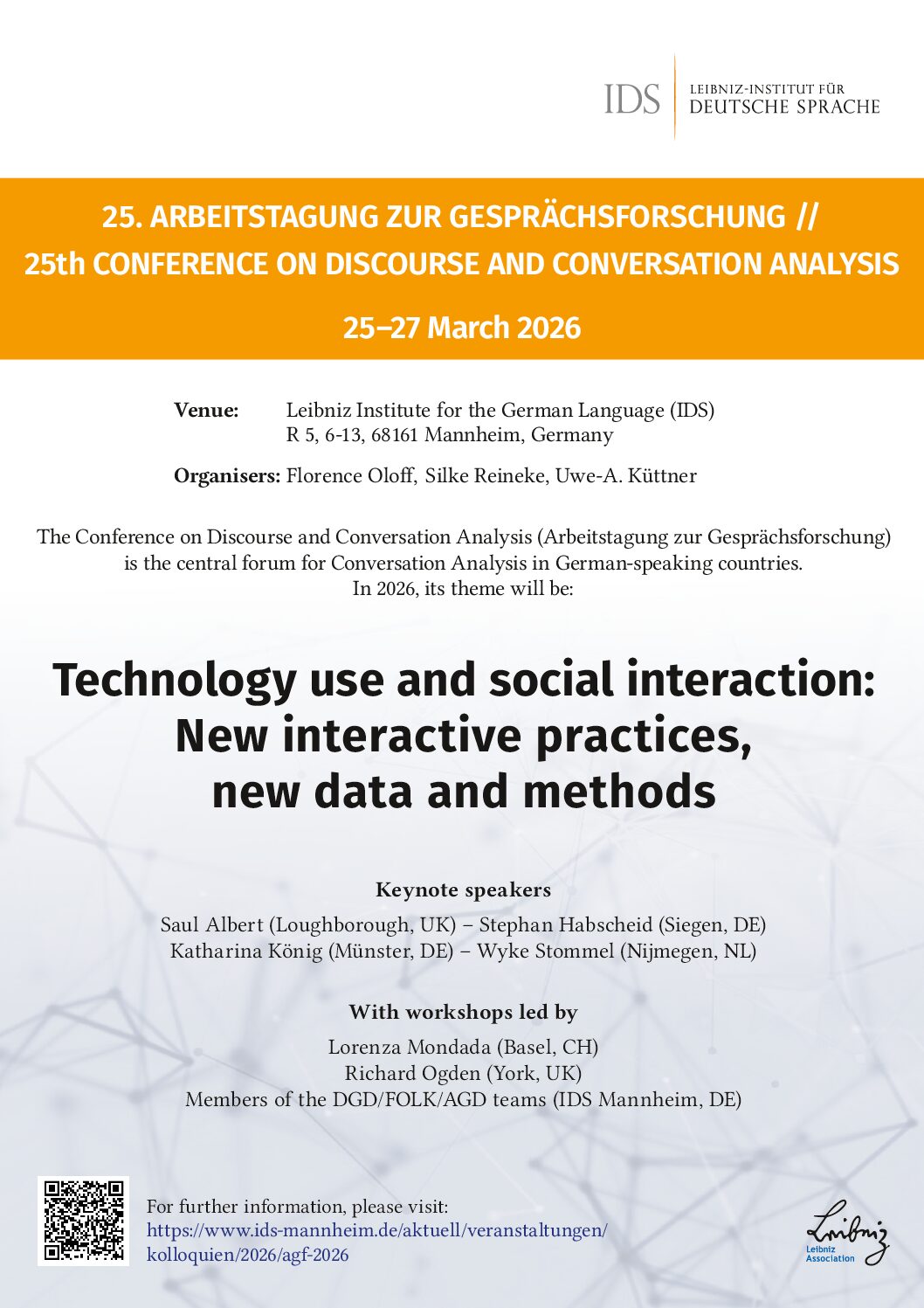Europäische Diskursgemeinschaft (EuDG)
Die Europäische Union ist ein einzigartiger Kommunikationsraum, in dem ähnliche Themen in verschiedenen Sprach- und Kulturräumen diskutiert werden. Unser Projekt zielt darauf ab, diese parallelen Diskursbereiche mit Methoden der qualitativen Diskurslinguistik, der Korpuslinguistik und der Computerlinguistik zu untersuchen.
Projektbeschreibung
Europa ist nicht nur eine politische und ökonomische (Werte-)Gemeinschaft, sondern bildet auch einen gemeinsamen, diskursiven Raum, die Europäische Diskursgemeinschaft: Vor unterschiedlichen sprachlichen und kulturellen Hintergründen wird in verschiedenen Ländern der EU ein breites Spektrum gesellschaftlich relevanter Fragen zur selben Zeit diskutiert (Europäische Integration, Migration, Gleichgewicht zwischen Sicherheit und Bürgerrechten, etc.). Unser Projekt basiert auf der Annahme, dass sich die Bürger Europas im diskursiven Umgang mit Fakten und Fachinhalten und insbesondere beim Transfer von Expertenwissen aus verschiedenen Bereichen in einer Diskursgemeinschaft bewegen – trotz der vordergründig einzelsprachlichen Kulturbindung. Es gibt bisher jedoch keine diesem Gegenstand adäquate übersprachliche und sprachvergleichende Diskurslinguistik.
Im Projekt Europäische Diskursgemeinschaft: Perspektivenfrieden und Perspektivenstreit arbeiten wir an einer korpusbasierten, kontrastiven Methodologie, die qualitative und quantitative Verfahren kombiniert, als Grundlage für eine multilinguale und sprachvergleichende Diskurslinguistik. Ziel des Projektes ist es, eine sukzessiv erweiterbare, multilinguale Methodenplattform zur kontrastiven Untersuchung sprachübergreifender Diskurse zu entwickeln und an einem spezifischen Diskurs zu testen. Damit sollen je sprachgebundene Sachverhaltsdarstellungen, Diskursperspektiven, Denkstile und Interpretationsroutinen transparent gemacht werden.
In der Pilotphase des Projekts dient uns zunächst der Impfstreit als europaweiter Diskursgegenstand. Das Thema wurde einerseits aufgrund der hohen gesellschaftlichen Relevanz und Emotionalität und andererseits aufgrund einer spezifischen Kombination aus allgemeinen und fachlichen Inhalten ausgewählt. Anhand eines kleinen Zeitungsartikelkorpus identifizieren und analysieren wir in den Sprachen Deutsch, Englisch, Französisch und Italienisch relevante Diskursparameter, bei denen wir Annotationen auf einer autosemantischen Mikro- und einer abstrakten, interpretationsbasierten Makroebene miteinander kombinieren und im Hinblick auf verschiedene Fragestellungen auswerten. Unsere Annotationsparameter erfassen insbesondere argumentative Strukturen, sprachkulturelle Konzeptionalisierungen, Emotionen und inhaltliche Positionierungen. Die Auswertung soll Aufschluss über die Hauptkonvergenzen und -divergenzen zwischen den verschiedenen Sprachen und Kulturen geben, insbesondere hinsichtlich der prävalenten argumentativen und emotionalen Muster und wie diese sprachlich realisiert werden.
In dem Projekt entsteht gerade im Rahmen der 4EU+ European University Alliance eine internationale Zusammenarbeit mit der Universität Sorbonne in Paris, der Karls-Universität in Prag, der Universität in Warschau und der Universität Mailand (UNIMI). Unter dem Flagship 2 Europe in a changing world: Understanding and engaging societies, economies, cultures and languages wird die Zusammenarbeit intensiviert und gemeinsam wird ein Beitrag zur Lösung wichtiger gesellschaftlicher Herausforderungen erarbeitet.
Dieses Projekt wird durch das Programm Erasmus+ der Europäischen Union unter der Finanzhilfevereinbarung Nr. 612621 kofinanziert.
Veröffentlichungen
Atayan, V., Felder, E., Fetzer, B., Mattfeldt, A., Moretti, D., Straube, A., & Wachter, D. (2020). Europäische Diskursgemeinschaft.: Projektskizze einer sprachvergleichenden Diskursanalyse. Linguistik Online, 103(3). https://doi.org/10.13092/lo.103.7113

Kurse

Workshops

Tagungen und Präsentationen
Projektbeteiligte

Projektleitung: Prof. Dr. Vahram Atayan und Prof. Dr. Ekkehard Felder
Projektmitarbeiter: Maria Becker-Adrian, Bettina Fetzer, Dr. Anna Mattfeldt (bis 2020), Daniele Moretti, Vanessa Münch (bis 2019), Annika Straube und Daniel Wachter

